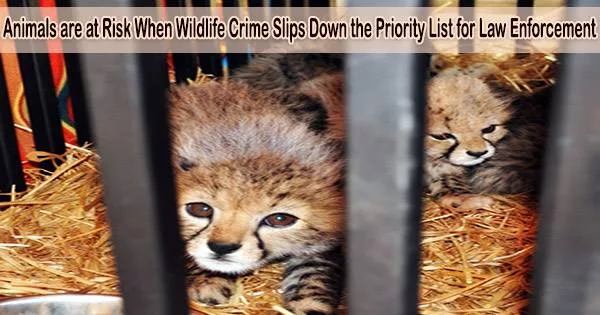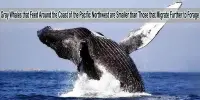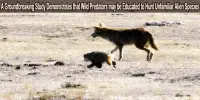Wildlife crime refers to any illegal activity that involves the exploitation or harm of wildlife. It encompasses a wide range of offenses, including poaching, illegal wildlife trade, habitat destruction, and smuggling of protected species or their parts.
According to study led by Nottingham Trent University (NTU), despite being one of the most expensive types of crime in the world and having connections to violent and organized crime, wildlife crime is dropping down the list of policing priorities due to a lack of information, resources, and experience.
The study, commissioned by the International Fund for Animal Welfare (IFAW), examines the current state of wildlife crime in the UK and its enforcement. It serves as the foundation for IFAW’s significant new study, Make species Matter, and campaign, which aims to inspire the general public, decision-makers, and organizations to pressure the government to better conserve priceless species.
Wildlife crime which increased by an estimated 30% between 2019 and 2021 is broadly defined as the illegal exploitation of wildlife species, including poaching, such as illegal hunting, fishing, killing, or capturing; abuse; and/or trafficking of wild animal species. Interpol and the United Nations Environment Program estimate that natural resources worth as much as USD 91 billion to USD 258 billion annually are being stolen by criminals.
Governments, international organizations, and conservation groups are actively working to combat wildlife crime through various measures, such as strengthening legislation, enhancing law enforcement, promoting public awareness, supporting conservation efforts, and collaborating internationally to address this global issue.
In both 2015 and 2022, surveys were conducted with police forces and Police and Crime Commissioners by researchers from NTU and the University of Gloucester. Additionally, they interviewed a variety of academics and Non-Governmental Organizations (NGOs) with experience in wildlife crime and wildlife law. In addition, the team analyzed literature on wildlife crime and wildlife law in the UK.
Our respondents pointed to some inconsistency in the understanding of wildlife crimes and wildlife and a greater need for training and resources to support effective investigation and prosecution. As a result, we found that effective wildlife crime enforcement is heavily dependent on the enthusiasm, dedication and specialist knowledge of individual officers and prosecutors rather than there being a clear, coordinated, effective permanent system in place across the UK.
Dr. Angus Nurse
Findings demonstrated that wildlife crime is not currently prioritized equally with “mainstream” crimes as a primary enforcement concern. This is true even though every wildlife crime officer surveyed claimed that wildlife offenses were connected to other major crimes and that 89% of them should be treated with the same attention as more conventional offenses.
Wildlife crimes were frequently perceived as victimless crimes and as such were regarded as less serious violations. According to some, the absence of a human victim causes underreporting and a reduced impression of threat, injury, and risk.
In the UK, notifiable offenses are serious crimes that are reported to the Home Office by the Police for statistical purposes, and only a small amount of serious wildlife crimes are notifiable.
All of the enforcement officers who responded to the surveys viewed this as a problem since it indicates that wildlife crime does not have the same level of priority as other crimes and that this has an impact on its recording. This makes it difficult to determine where priority should be placed and contributes to the lack of precise statistics on the extent of wildlife crimes. Recording is uneven and location-specific, which furthers the problem.
According to the study, wildlife crime is a problem that requires little funding and relies primarily on the commitment of individual officers as well as assistance from nongovernmental organizations (NGOs) like the RSPB, RSPCA, and League Against Cruel Sports. Cuts in policing budgets due to austerity measures are also impacting on the effectiveness of wildlife policing.
Participants expressed worries about the lack of relevant knowledge in some fields, particularly when experienced wildlife crime police and prosecutors transfer into other positions without assurances that the specialized resource will be kept.
Participants noted challenges with training and the degree to which these officers are able to devote themselves to this enforcement given other demands, despite the fact that the function of wildlife crime officer is acknowledged as a crucial component of the policing response to wildlife crime.
Dr. Angus Nurse, research lead and Head of Criminology at NTU’s School of Social Sciences, said, “It’s clear that enforcement response is variable, indeed our Police and Crime Commissioner respondents indicated a clear belief that some police forces investigate and respond to wildlife crimes better than others.”
“Our respondents pointed to some inconsistency in the understanding of wildlife crimes and wildlife and a greater need for training and resources to support effective investigation and prosecution. As a result, we found that effective wildlife crime enforcement is heavily dependent on the enthusiasm, dedication and specialist knowledge of individual officers and prosecutors rather than there being a clear, coordinated, effective permanent system in place across the UK.”
It is important to recognize the significance of wildlife conservation and support measures to combat wildlife crime to protect the world’s precious biodiversity for future generations.
Based on the research findings, the IFAW report calls for a number of changes to policy and law, including making wildlife crimes notifiable; harmonizing, simplifying, and streamlining all UK wildlife law; ensuring that there is at least one dedicated full-time wildlife crime officer per force; incorporating wildlife crime into the Policing Education Qualification Framework; and developing enforcement, prosecution, and sentencing guidelines to combat inconsistencies around wildlife crime scenarios and how those should be dealt with.
Frances Goodrum, Head of Campaigns, IFAW UK, said, “Wildlife in the UK is already in crisis being pushed to the brink through habitat loss, climate change and pollution. But these alarming findings show that criminals are purposefully going out of their way to harm or make profit from them.”
“The fact that wildlife crime cannot be reported as a crime in a meaningful way means the government cannot measure or manage the current situation. Countless sinister crimes could be being committed we simply do not know it is all very ‘finger in the air.’ This must change our wildlife deserves better.”
















